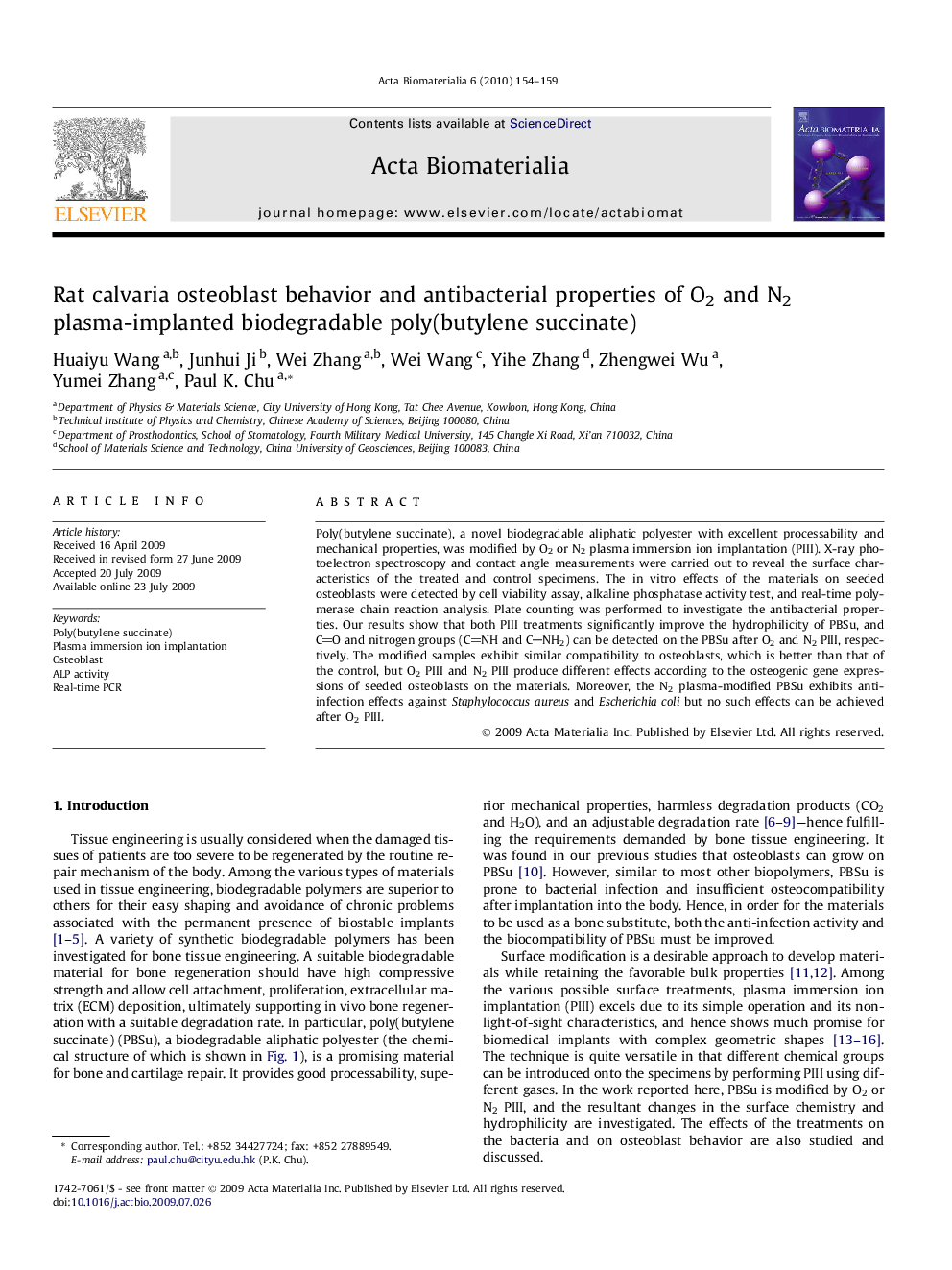| Article ID | Journal | Published Year | Pages | File Type |
|---|---|---|---|---|
| 10160379 | Acta Biomaterialia | 2010 | 6 Pages |
Abstract
Poly(butylene succinate), a novel biodegradable aliphatic polyester with excellent processability and mechanical properties, was modified by O2 or N2 plasma immersion ion implantation (PIII). X-ray photoelectron spectroscopy and contact angle measurements were carried out to reveal the surface characteristics of the treated and control specimens. The in vitro effects of the materials on seeded osteoblasts were detected by cell viability assay, alkaline phosphatase activity test, and real-time polymerase chain reaction analysis. Plate counting was performed to investigate the antibacterial properties. Our results show that both PIII treatments significantly improve the hydrophilicity of PBSu, and CO and nitrogen groups (CNH and CNH2) can be detected on the PBSu after O2 and N2 PIII, respectively. The modified samples exhibit similar compatibility to osteoblasts, which is better than that of the control, but O2 PIII and N2 PIII produce different effects according to the osteogenic gene expressions of seeded osteoblasts on the materials. Moreover, the N2 plasma-modified PBSu exhibits anti-infection effects against Staphylococcus aureus and Escherichia coli but no such effects can be achieved after O2 PIII.
Keywords
Related Topics
Physical Sciences and Engineering
Chemical Engineering
Bioengineering
Authors
Huaiyu Wang, Junhui Ji, Wei Zhang, Wei Wang, Yihe Zhang, Zhengwei Wu, Yumei Zhang, Paul K. Chu,
